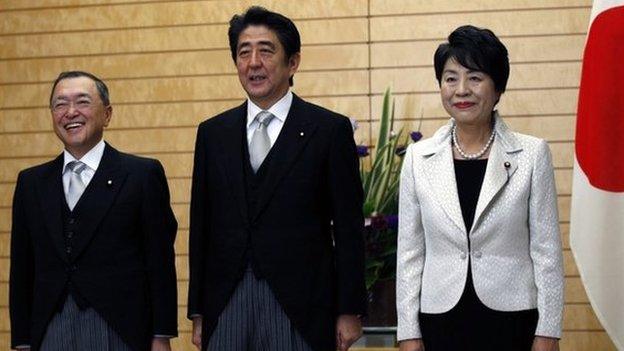Japan PM Shinzo Abe calls snap election in December
- Published
Mr Abe may be looking for a mandate to "push ahead with even bolder economic reform" reports Rupert Wingfield-Hayes
Japan's Prime Minister Shinzo Abe has called an early election, two years ahead of schedule.
At a news briefing, he said he would dissolve parliament later this week and was also delaying a planned but unpopular increase in sales tax.
Mr Abe was elected two years ago with an ambitious plan to revive the economy, but has struggled to do so.
His popularity has fallen but he is expected to win the election, which will take place in mid-December.
"I will dissolve the lower house on 21 [November]," Mr Abe said.
Mr Abe's party, the Liberal Democrats, already have a majority in the lower house, but analysts said Mr Abe hoped to consolidate power over an opposition party which is in disarray.
He also wants public support to continue to press ahead with "Abenomics", his ambitious plan to kick-start Japan's stagnant economic growth using heavy government spending and economic reforms.
"I need to hear the voice of the people," Mr Abe said. "I will step down if we fail to keep our majority because that would mean our Abenomics is rejected."
One of his senior advisers told the BBC instability was the last thing voters want.
"Many people in Japan still remember how chaotic Japan's revolving door politics was, when the prime minister changed once every year," said Tomohiko Taniguchi, special adviser to the cabinet.
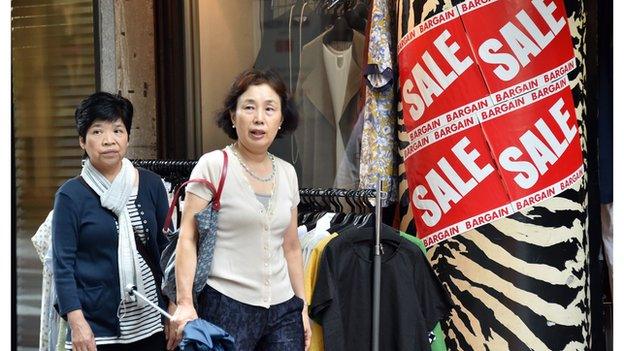
A sales tax increase was implemented in April to curb Japan's massive public debt
.jpg)
But that dented consumer spending which is crucial to the Japanese economy
Consumers not spending
The rise in Japan's sales tax was brought in by the previous government in 2012 to curb Japan's huge public debt, which is the highest among developed nations.
The first rise - from 5% to 8% - took place in April. Mr Abe's government had hoped the increase would boost government income but instead Japanese consumers stopped spending.
Figures released on Monday showed that the world's third biggest economy had fallen back into a technical recession.
The second increase, to 10%, was set for October 2015 but will now be delayed by at least 18 months.

Analysis: Rupert Wingfield-Hayes, BBC News, Tokyo
People on the streets of Tokyo appear bemused by the prospect of yet another election.
But Mr Abe said he wants a new mandate to push ahead with even more ambitious economic reform.
He wants to spend even more money, and to delay another tax rise that was due to take affect at the end of next year.
But there is another reason for calling an election now. This month Mr Abe's popularity slipped below 50% for the first time since his election in 2012.
By Japanese standards 50% is still quite high. But in another year from now Mr Abe may face a much tougher battle to get re-elected.
Better to go now while he is still almost certain of winning another majority, and locking in another four years in power.

An election does not need to be held until 2016.
But Mr Abe is looking for a secure mandate ahead of introducing unpopular policies that could see his popularity fall even further, correspondents say.
Mr Abe has also strongly advocated restarting Japan's nuclear power generation plants, all of which were shut down amid public anger after the Fukushima disaster in 2011.
Before the accident about 30% of Japan's power was nuclear-generated, and Mr Abe says the shutdown is damaging the economy because of expensive energy imports.
Mr Abe has also supported a reinterpretation of Japan's constitution that would allow the use of force to act to defend allies, known as collective self-defence.
- Published11 December 2014
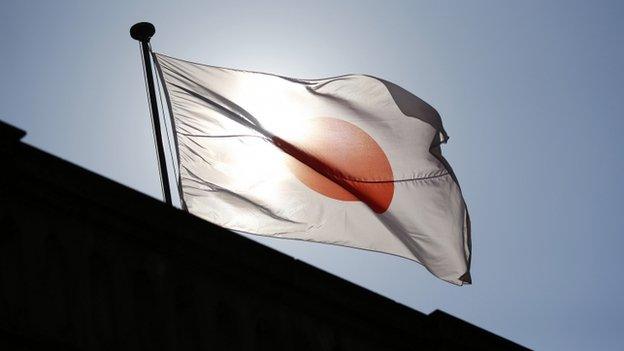
- Published18 November 2014
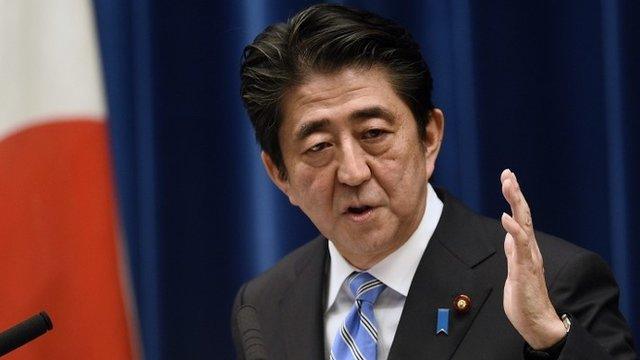
- Published23 October 2017
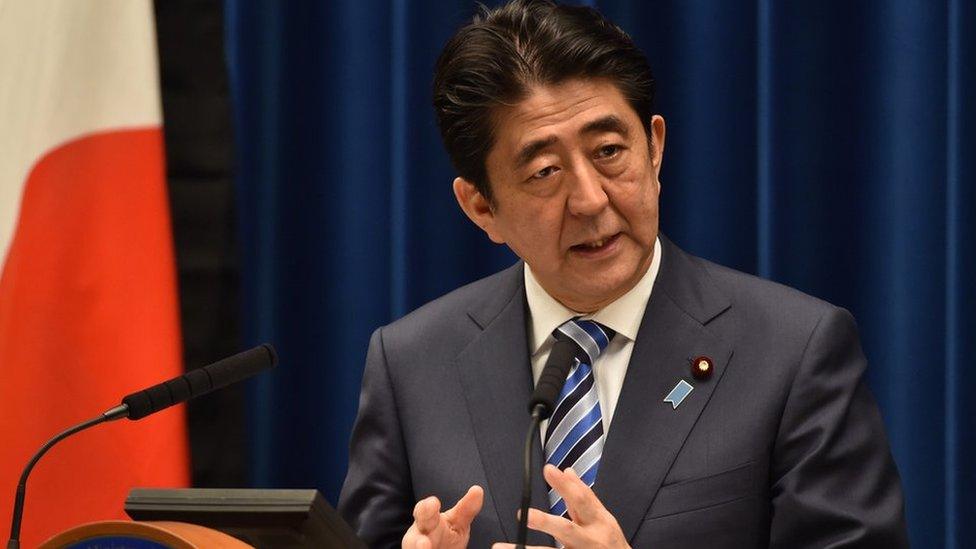
- Published17 November 2014
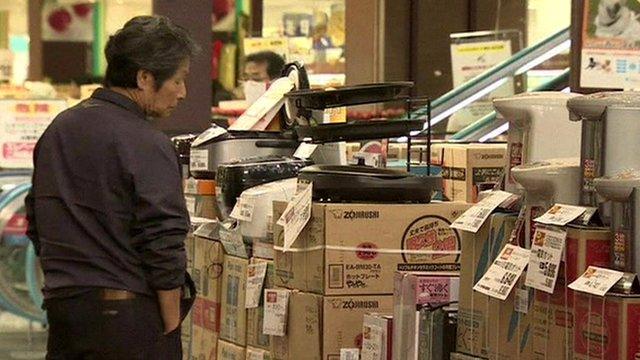
- Published17 November 2014
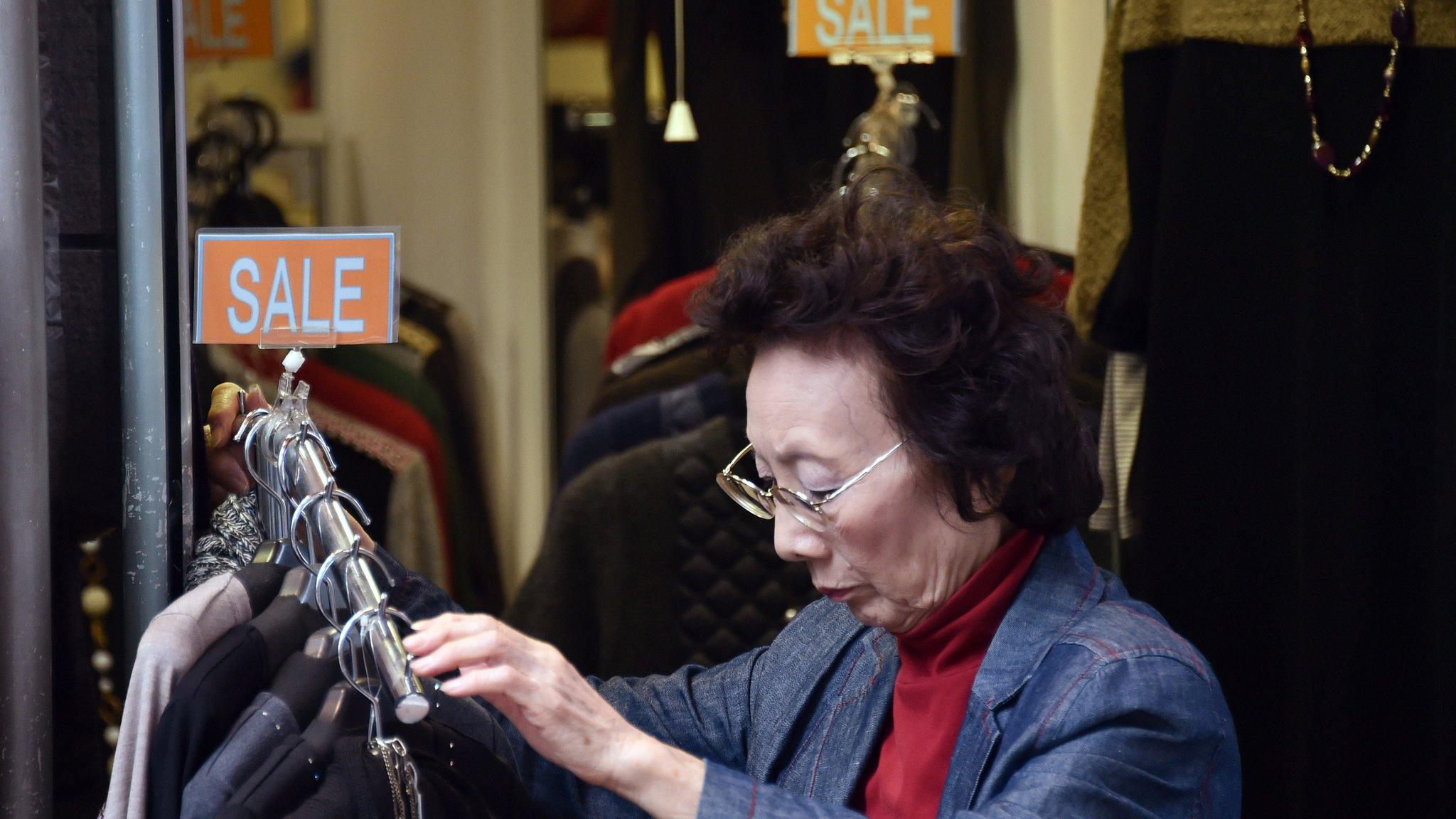
- Published21 October 2014
